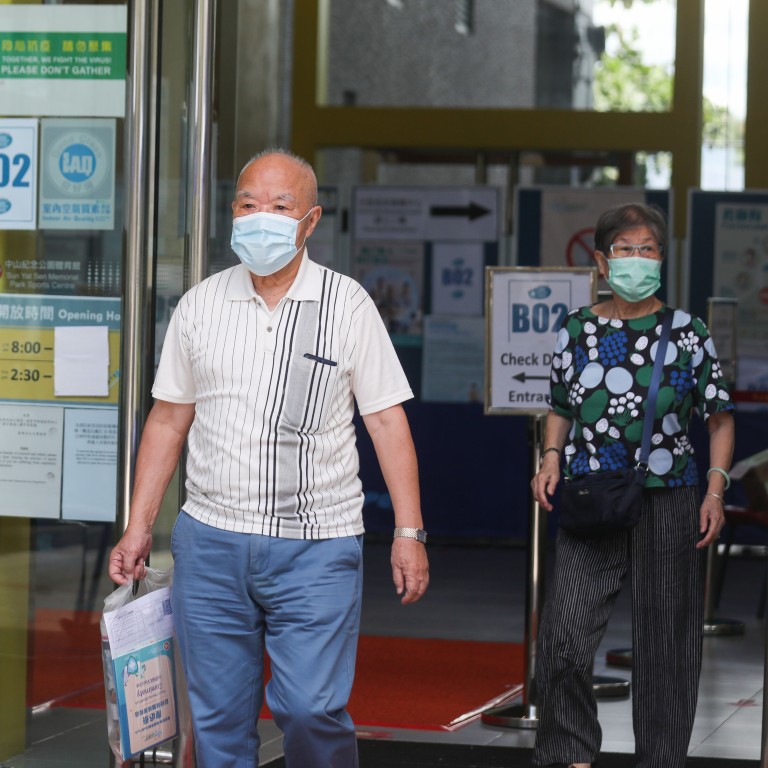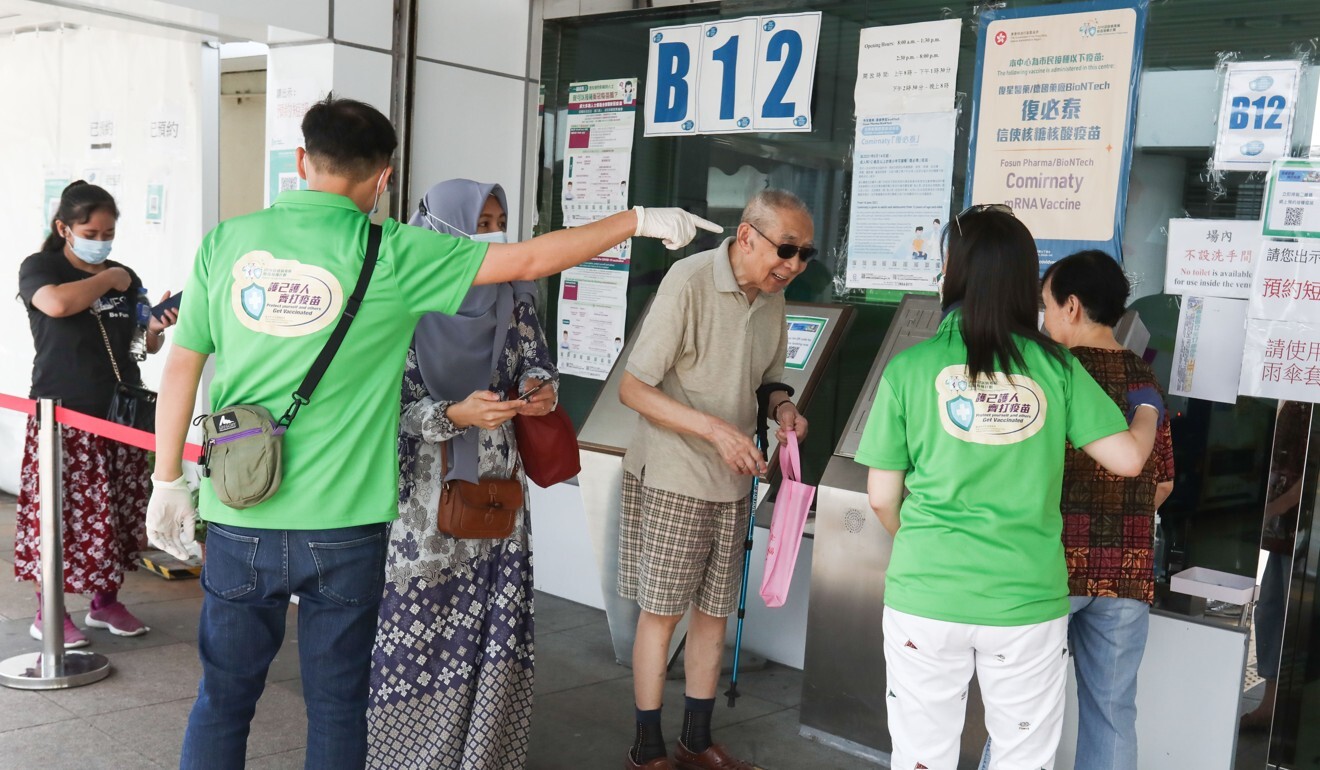
Coronavirus: lukewarm response at Hong Kong vaccination centres as walk-in scheme to boost flagging jabs rate opens
- Staff member at one centre reports about 10 walk-ins by noon, while some vaccine recipients say they got traditional bookings just a day in advance
- ‘Seven-day moving average’ for jabs has fallen from peak of about 66,000 to just 30,000; city records one imported infection on Wednesday
At about noon, the facility at Sun Yat Sen Memorial Park Sports Centre was close to empty. A staff member told a Post reporter that a few hundred bookings were scheduled but only about 10 people had so far asked for a same-day ticket.
Hong Kong ramps up Covid-19 jabs drive with walk-in slots open to all
Ricky Chau, 56, who works as a decorator, said he already had a slot reserved for Sunday, but changed his mind and showed up on Wednesday instead.
“I am free today, so I decided to walk in to take my second jab,” he said, adding he had not changed his appointment in advance or planned ahead for the same-day ticket. “From my previous experience, the slots are pretty empty, so I believed the staff would let me in when I [showed up].”
Logistics worker Yu Chi-shing, 58, praised the same-day process.
“It’s convenient for those who want to walk in, but I also made an appointment [on Tuesday] to secure myself a spot,” he said. “Booking vaccinations online is quite easy, as I was able to reserve a slot.”
But Christina Chau, who brought her secondary school-age daughter for a jab, opted against trying for a same-day ticket, worrying the slots would be full. Even so, her traditionally booked appointment was still secured in under 24 hours.
“It was quite convenient when I reserved the slot last night. I managed to get today’s slot smoothly,” she said. “As making a booking is quite convenient … I prefer reserving an appointment in advance.”
A vaccination centre in Lai Chi Kok in Kowloon also attracted a few residents in the morning who had not booked ahead, including a secondary school pupil who hoped to get his first shot so he could take part in sporting events at school next month.

Health authorities, meanwhile, confirmed just one imported case – an arrival from the Philippines – on Wednesday, bringing the city’s overall tally to 12,167, with 213 related deaths.
The 55-year-old domestic worker, who flew into the city on Cebu Pacific flight 272 on Monday, carried the L452R mutation, which is linked to several variants, including the Delta one.
Vaccination take-up has slowed in recent weeks, with the number of doses administered each day dipping below 20,000 for the first time since May on Tuesday. The “seven-day moving average” for jabs has also fallen from a peak of about 66,000 in early August, to just 30,000 for the past week.
To date, the city has administered over 8.4 million doses in total, with more than 4.4 million people, or 65.7 per cent of the eligible population, having received at least one shot. About 59.7 per cent of eligible residents, or more than 4 million people, were fully vaccinated as of Wednesday.
Those under the age of 12 remain ineligible for jabs.
Hong Kong to bring vaccination records in line with British requirements
Officials have been under great pressure to boost the falling vaccination rates – and to get the city’s border with mainland China fully reopened on the back of those figures. They announced on Monday that walk-in inoculation services would be extended to all eligible groups from Wednesday at 21 of the city’s community vaccination centres.
But the arrangement is not available at the five vaccination centres operated by private hospitals.
Respiratory disease expert Dr Leung Chi-chiu said the latest extension covering everyone eligible for jabs would be less effective in driving up vaccinations because those now included, people aged 20 to 59, already had a high inoculation rate. More than 70 per cent had already received their first dose.
But the group with the lowest rate – those aged 80 or above, with just 13.76 per cent of them jabbed with a first dose as of Tuesday – had been able to enjoy the walk-in arrangement for two months.
“Same-day tickets are nothing new ... It was useful in the beginning when vaccination centres were fully booked, but most centres have plenty of slots now,” he said.
“The unvaccinated group are mostly elderly, they are concerned about the side effects of vaccination which cannot be solved by using the same-day ticket measure. The government should stress the need for vaccination to them instead.”
The walk-in arrangement was first introduced on July 29 when people aged 70 or over could get a jab at community vaccination centres. It was later extended to those aged 60 and above, and to children aged at least 12.
Only the BioNTech vaccine is currently approved for those aged between 12 and 17.
Same-day tickets under the new scheme will be distributed daily from 7.45am on a first-come, first-served basis this month and next.Starting from November, when the operating hours of those centres will be reduced, tickets will be given out 15 minutes before they open.

